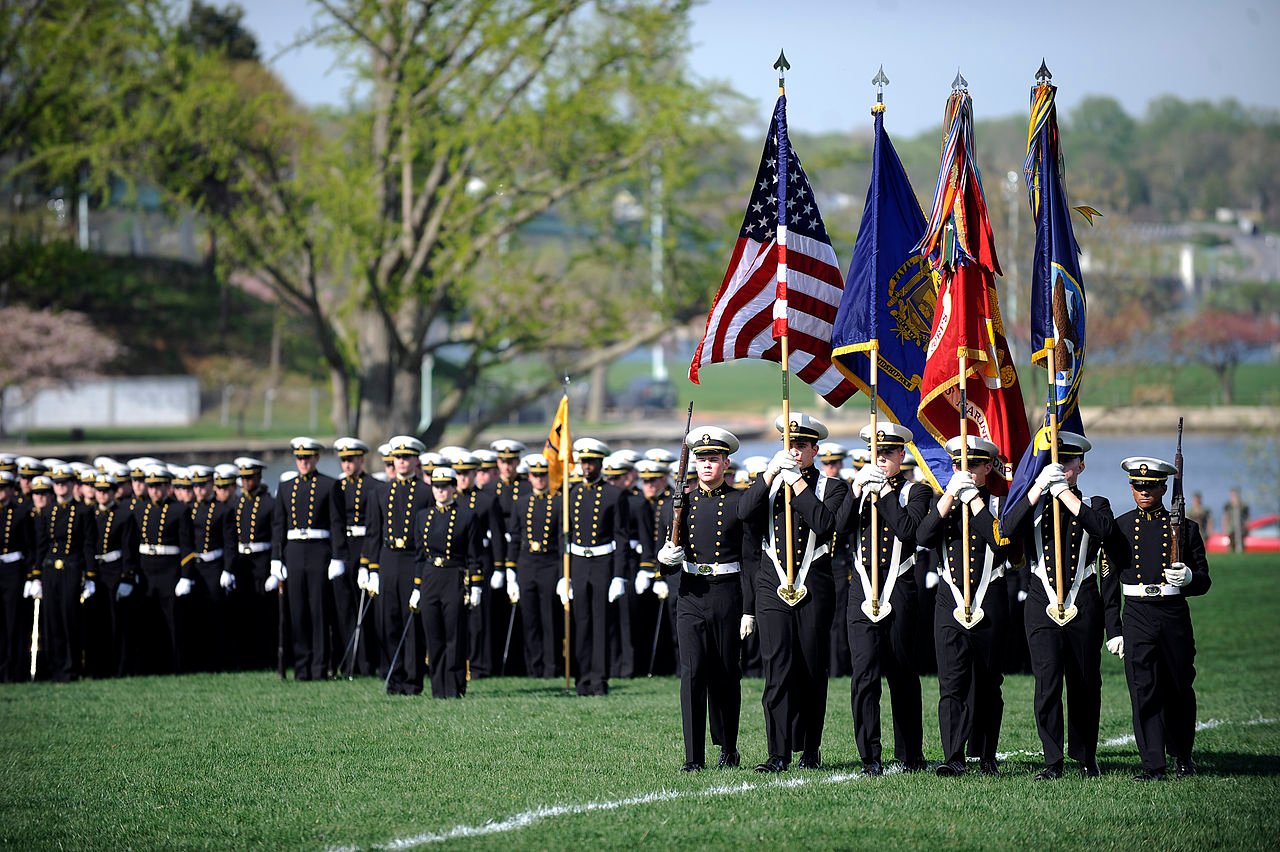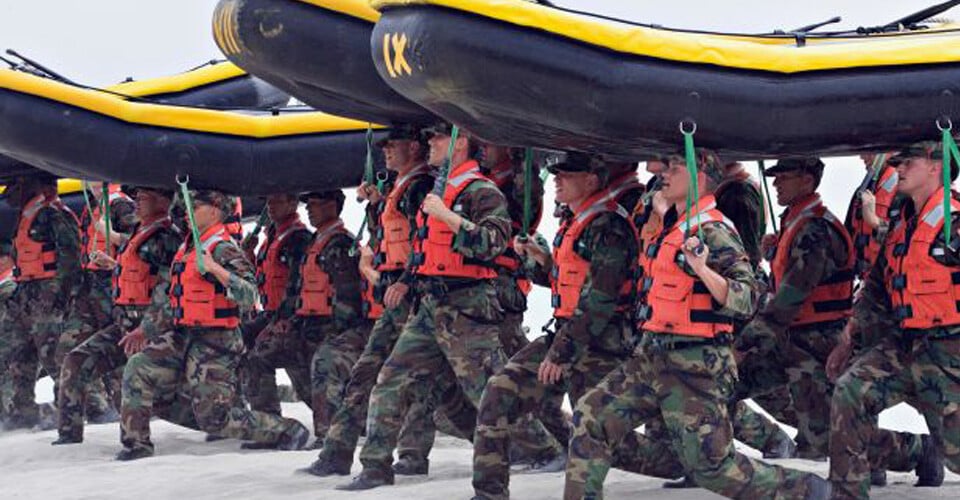The student body at the Naval Academy is called The Brigade, and it’s neatly organized into thirty-six “teams,” which are referred to as companies (when I was there – today, there are thirty companies). Within each company, there are equal numbers of plebes, third-class, second-class and first-class midshipmen. Each midshipman plays leadership roles of varying degrees within their corresponding company. Seniors, or “firsties,” rule the company roost for most of the day-to-day functions, but the real person in charge is the company officer. He or she usually has spent four to five years in the fleet (at sea), and has “earned” one of the thirty-six best shore-duty jobs in the Navy.
As my sophomore summer came to an end, we were told that our company – Third Company – was receiving a new company officer. I was elated – our last one, a Marine Corps Infantry Captain, was rough. For starters, he despised me. No, really – I heard him say it at my disciplinary hearing, along with his promise to all in the room, “I will wave goodbye to Midshipman Mills as he leaves the Academy grounds once and for all.” That statement was said six months prior to his departure. No one was happier to see him go than me. In fairness, I wasn’t the model midshipman – far from it, actually – and I was the root cause for lots of extra work for him – unintentionally, of course. Needless to say, I wasn’t a big fan of his either. I figured that any change in company officers was a good change – or at least that’s what I thought, seconds before meeting our newest one.
The new arrival wasn’t like the “normal” company officers. Most of them did two 24-month tours of duty at sea before arriving to their Bancroft Hall office (the Academy dormitory). They were either recently married or ready to start a family (or both). Their tour of duty at the Academy was a relative vacation, compared to their last couple of duty stations. Most company officers were reasonably laid back, especially those who weren’t “lifers.” Of course, they wouldn’t come out and say they were retiring after their two years on the shores of the Chesapeake, but you could tell the short timers from the lifers pretty quickly. For one thing, short timers delegated everything they could to the seniors. Lifers, on the other hand, took a “trust but verify” approach – they micromanaged most everything.
Color Company Award
Far and away, one of the biggest indicators of a company officer’s commitment to their Naval career was the intensity at which they pursued winning the Color Company Award – the top company in the Brigade for a given year. Winning the prized award was an “all-hands-on-deck” exercise. Nowhere within the Academy was the Fifth Law of the Navy more applicable than in the quest for this award:
“On the strength of one in the cable,
Dependeth the might of the chain,
Who knows when thou mayest be tested?
So live that thou bearest the strain!”
The real takeaway of this law is: Don’t be the weakest link in the chain.
Many Company Officers talked about earning the Color Company distinction, but few stayed the course – once they realized how it was calculated. The award’s algorithm takes into account everything a student does at the Academy – and I mean everything – good and bad. From academic and athletic performance to marching and military bearing results, all midshipmen actions are assigned a number and entered into the color award equation – the company with the highest number wins. One of the keys to winning is strengthening – or reducing – the weakest links in the company “chain.” Eliminating one poor performer dramatically improves a company’s color-point average. Of course, I didn’t know anything about color company math until I sat down with my new company officer the day before the beginning of my third academic year – my junior year.
Two for Seven
The start of your Second Class year begins with a party called “Two For Seven.” The name comes from a long-standing military commitment that occurs the moment you attend your first academic class of your junior year. Your attendance triggers a formal commitment to serve two more years at the Academy and five years in the fleet – add the two together and you get the “Two for Seven” equation. You don’t realize it when you first arrive – at least I didn’t get the memo on it – that your first two years come without a “pay-back” penalty. But, once you take that first class of your junior year, your pay-back penalty is stiff. Should you be expelled, your penalty is three years of service as a junior petty officer in deck division on a ship.
I had first-hand deck division experience after my plebe year on the “mighty” USS St. Louis (LKA-116), a 1960’s vintage Fast attack Cargo Ship based out of Sasebo, Japan. What it lacked in armament, it made up for in cargo cranes. I had no idea how much cable is required to operate an 80-ton crane until I spent the better part of a summer greasing it. Six weeks of my sophomore summer was spent hand-greasing cables, chipping paint and polishing brass – deck division is no picnic.
I knew that our new company officer was a lifer the moment I walked into his office to have our one-on-one meeting (which was unusual – I’d never had a one-on-one meeting that wasn’t associated with a disciplinary action, and even then there were “witnesses” in the office). His rank said it all – he was a Lieutenant Commander, which meant he had crossed the 10-year threshold – or was about to. (Most who stay in the Navy for a decade end up retiring after 20 years because of the financial benefits). This was not a good sign.
To make matters worse, he was a nuclear power submariner – they are the most anal officers in the Navy. As I found out years later, they are the way they are for good reason. My elation for welcoming our company officer had gone from good to bad to horrible. Just when I thought he couldn’t be “that bad,” he said, “Midshipman Mills, I’m going to save you and me a lot of time and pain. I’ve taken the liberty of preparing this document for you.”
“What is it?” I asked slowly,
“It’s your separation papers.”
Now, I had dealt with a fair number of setbacks at the Academy in my first two years – failing my first ever class (Calculus), attending my first ever summer school, and starring in multiple disciplinary and academic review boards, but this was a new one for me – no due process here, just cut straight to the bottom line…er…ah…actually, just sign on the bottom line and no more nightmares about serving in deck division as Petty Officer third class Mills.
It took me a moment to respond as I focused on the beady eyes of my new “warden” of Third Company. His glasses were thick, making his eyes appear even smaller than they actually were, which held my attention perhaps a little longer than it should.
At a lost for words, he said, “Look, I’m sure you’re a good person, but lets face the facts – this isn’t the school for you. I’ve reviewed your transcript and you’ve already received the maximum demerits for a senior, and you still have two more years to go. One more infraction and you’ll be kicked out – and judging by your past performance to date, that next infraction will occur in less than two weeks’ time.”
He let his logic linger for a moment while I was still processing how to respond – this was far beyond my worse expectations for a first meeting with our new company officer. He continued, “I’ve been on back-to-back sea tours. I’ve been very successful in every position I’ve had, and I fully expect to win the Color Company during my tour here. You should know that your kind of performance will not be tolerated and should you stay, I will look for every opportunity to have you expelled.”
I shifted my focused from his glaring eyeballs to his black regulation mustache that neatly ended at the corners of his mouth. Something was distracting me – I couldn’t quite put my finger on it until he said the word “expelled” – he said it with just a whisper of lisp, more like “exthpelled.” I remember thinking to myself, “well this is going to suck, but I’m not going to give him the satisfaction of my “quitting.”
He looked at me with growing frustration and said, “Do you hear what I’m saying Midshipman Mills? It’s over.”
“Nope” is all I said.
“Exthhcuse me?”
“I’m not signing it.”
The Four Essential Actions of High-Performance Leadership
These lessons aren’t exclusive to the Navy SEALs; they are used by successful entrepreneurs, nonprofit leaders, coaches, and sport captains—and now you can master them too. Unstoppable Teams is the handbook for how to build care-based teams that will push people to achieve more than they ever thought possible.





